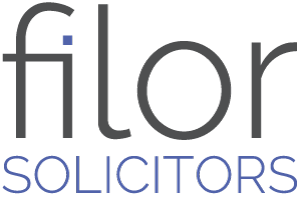Independent Workplace Investigations
The need for independent workplace investigations has experienced exponential growth. They are carried out for a varierty of different reasons.
For example, a Board might need to indepedently investigate serious misconduct complaints about a director/shareholder; sometimes just as matter of good corporate governance, or to help counter potential allegations of unfair prejudice where the director concerned is also a shareholder and is therefore subject to good leaver/bad leaver provisions in a shareholders agreement.
In addition, independent workplace investigations are commonly undertaken when an organisation receives a serious discrimination, bullying, or whistleblowing complaint made by an employee which could result in both adverse publicity, and high value litigation.
For regulated organisations having complaints dealt with both expeditiously and externally can help prevent a regulator from commencing its own formal investigation.
An important consideration with regards to managing an investigation either in-house, or externally, is that the business will not be able to claim legal privilege for most aspects of the investigation. Even if it is carried out by in-house lawyers there are limits as to the extent which legal advice privilege can be claimed.
Organisations need to be mindful that any work carried out by auditors, forensic accountants will generally not be privileged.
So, the starting point for any independent investigation is for the organisation to define which of its employees will be “the client” for the purposes of communicating with external lawyers and accessing confidential documents. The group is likely to be restricted to just a few directors and key personnel. By doing so it helps to control the dissemination of advice thereby helping to protect legal advice privilege.
Instructing private investigators needs to be undertaken with extreme caution. Done without good reason, and without appropriate authorisations may lead organisations to fall foul both of the law and breach the Information Commissioner’s Guidance.
Depending on the nature of an investigation, organisations will need to consider which employees need be informed about it. In some instances where the matter is serious and potentially extremely newsworthy, then the entire organisation may need to be forewarned if only to head off rumour and speculation, remind staff about their duty of confidentiality, and to preserve documents.
In terms of interviewing employees, thought needs to be given about who to interview. As a general rule it is generally advisable to start with the most junior employees and move up the hierarchy. How much information should an interviewee be given in advance of any meeting? Some employees are often reticent about being interviewed unless they are provided with all the questions in advance. What documents will these employees need to refer to, and how far in advance should any information be provided especially where documents are sensitive?
With regards to drafting an investigation report it is worth thinking about whether to have initial conversations first about potential findings before any final non-privileged document is created. The report should only be shared with individuals who are properly regarded as the client. If it does need to be shared with third parties then thought should be given to securing a limited waiver of privilege.

